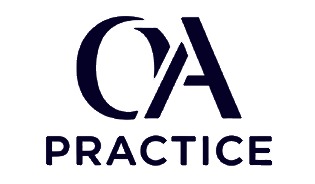D027 Advanced Pathopharmacological Foundations - Set 1 - Part 1
Test your knowledge of technical writing concepts with these practice questions. Each question includes detailed explanations to help you understand the correct answers.
Question 1: A patient with Alzheimer's disease shows improved memory after starting cholinesterase inhibitor therapy. Which mechanism best explains how this medication class helps maintain cognitive function in these patients?
Question 2: A nurse caring for a celiac disease patient notices the patient has greasy, bulky stools and signs of malnutrition. What dietary component must this patient permanently eliminate to prevent intestinal damage?
Question 3: An athlete presents with a resting heart rate of thirty-five beats per minute but no symptoms. What condition best explains this finding, and what action should the healthcare provider take?
Question 4: A patient with beta thalassemia requires regular blood transfusions to manage severe anemia. Which medication would specifically help increase red blood cell production as part of their treatment plan?
Question 5: During asthma management, a patient asks why their doctor avoids prescribing certain heart medications. Which medication class should be avoided in asthma patients due to potential bronchospasm?
Question 6: A chickenpox patient develops small, itchy blisters starting on the chest, back, and face. What intervention should be recommended within twenty-four hours of rash onset for best effectiveness?
Question 7: In Crohn's disease management, what distinctive pattern would a colonoscopy reveal that differentiates it from ulcerative colitis in the intestinal tissue examination?
Question 8: A diabetic patient on insulin therapy experiences masked hypoglycemia symptoms. Which concurrent medication class is most likely responsible for hiding these warning signs?
Question 9: A patient with myasthenia gravis shows severe muscle weakness and respiratory failure during crisis. What type of crisis requires immediate atropine administration as part of emergency treatment?
Question 10: When treating community-acquired pneumonia, antibiotics must be administered within a specific timeframe for optimal outcomes. What is the critical window for antibiotic administration after patient presentation?
Question 11: A pregnant woman in her third trimester asks about vaccine safety. Which vaccine is specifically recommended between twenty-seven and thirty-six weeks of pregnancy for infant protection?
Question 12: A COPD patient progresses through treatment stages but continues experiencing dyspnea. After trying LABA plus LAMA combination, what triple therapy represents the next escalation step?
Question 13: In sickle cell crisis prevention, which environmental factor should patients particularly avoid to reduce the risk of triggering painful vaso-occlusive episodes?
Question 14: A patient with medullary thyroid cancer has elevated calcitonin levels. Which cells in the thyroid gland are specifically affected by this type of cancer?
Question 15: During tuberculosis treatment, a patient must avoid oral contraceptives. Which TB medication interferes with contraceptive effectiveness, requiring alternative birth control methods?
Question 16: A patient with parathyroid dysfunction presents with muscle cramps, twitching facial muscles, and mood changes. Which hormonal imbalance best explains this clinical presentation?
Question 17: In Hutchinson-Gilford progeria syndrome, children age rapidly due to a genetic mutation. Which specific gene mutation causes this progressive disorder affecting the nuclear envelope?
Question 18: A patient with depression starts SSRI therapy. What timeframe should the healthcare provider explain for expecting initial mood improvement after starting these medications?
Question 19: During pediatric otitis media evaluation, the provider uses insufflation with an otoscope. What finding indicates the need to wait before prescribing antibiotics?
Question 20: A patient with pleural effusion secondary to heart failure requires medication management. Which drug class most directly addresses the fluid accumulation mechanism in this condition?
Need Guaranteed Results?
Our exam support service guarantees you'll pass your OA on the first attempt. Pay only after you pass!
Get Exam Support